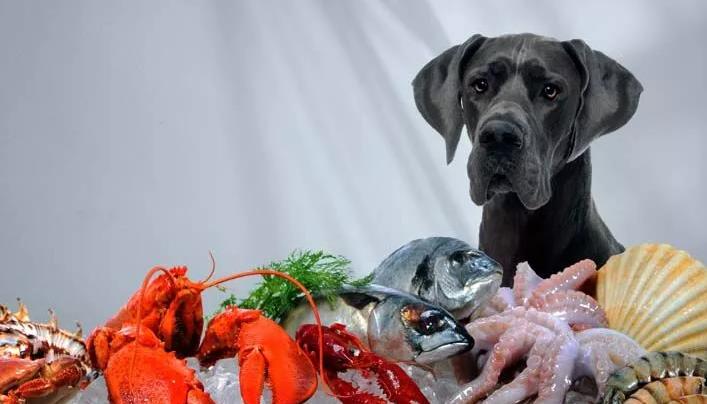Advantages of Seafood for Dogs
Is fish really great for canines? Indeed! At the point when taken care of with some restraint and modest quantities, fish can be a nutritious expansion to your canine’s decent eating regimen.
It’s an amazing wellspring of protein and omega-3 unsaturated fats, which are gainful for your little guy’s skin, absorption, and invulnerable framework.
Fish likewise has numerous minerals that are significant for solid body work, like zinc, iodine, selenium, magnesium, and potassium.
Dangers of Feeding Seafood to Your Dog
Will canines eat fish? While canines can eat fish as a treat or blend in with their standard food, has a couple of things to remember prior to taking care of your canine fish:
- Canines can have fish sensitivities. It’s interesting, however, that this can occur. A few side effects of fish sensitivities in canines incorporate gastrointestinal bombshell, retching, loose bowels, or bothersome skin. Take your little guy to the vet right away in the event that you suspect your canine has a fish sensitivity.
- Crude fish can contain a hurtful parasite. It’s critical to cook fish prior to taking care of it for your canine completely. Crude fish, particularly fish in the salmon family (e.g., trout, whitefish), may have a parasite that is extremely destructive to canines. This is classified as “salmon harming.” Symptoms incorporate the absence of hunger, spewing, looseness of the bowels, shortcomings, expanded respiratory rate, and seizures. Take your canine to the vet right away assuming you suspect they have salmon harming.
- Shells and bones can be stifling risks or deter the gastrointestinal parcel. Make a point to eliminate any shells and fish bones as even small pieces can be perilous.
- Taking care of your canine a lot of fish can open them to poisons and impurities. Fish contains hints of mercury and different impurities. Like individuals, canines ought to just eat fish with some restraint and in modest quantities to stay away from any hurtful impacts.
Instructions to Feed Seafood to Your Dog
You ought to constantly talk with your vet prior to serving fish to decide the right piece size for your canine. Indeed, even a solid deal with like fish ought to be calculated into your canine’s ideal every day adjusted diet.
Serve wild-got rather than cultivated fish. Dr. Richter says it’s better for your canine. (Also, it’s better for you, as well!)
Fish ought to be appropriately cooked. Never feed your canine crude fish. Fish ought to be completely cooked the entire way through.
Deshell and debone the fish, very much like you would when you eat it.
Serve fish plain. Try not to add any spread, salt, or different flavors.
Serve in limited quantities and with some restraint. Go on, sprinkle a little lobster on top of your puppy’s customary food!
Oftentimes Asked Questions
Q: Can canines have fish sensitivities?
A: Yes, yet all the same it’s intriguing. A few side effects of fish sensitivities in canines incorporate gastrointestinal surprise, regurgitating, looseness of the bowels, or bothersome skin.
Q: Can canines eat impersonation crab?
A: Yes, yet since impersonation crab is a handled food, Dr. Richter doesn’t prescribe taking care of it to canines.
Q: Can canines eat fish stock/chowder?
A: Technically indeed, yet many canned choices contain a great deal of dairy, salt, and different flavors that can be destructive to canines. It’s ideal to make a natively constructed variant restricting these fixings.
Q: Can canines eat lobster?
A: Yes, however you ought to just take care of your canine the lobster meat — never the shell — while likewise adhering to the rules above. What’s more, don’t sprinkle your little guy’s lobster with spread since canines ought to have restricted dairy.
Q: Can canines eat shrimp?
A: Yes, yet ensure the shrimp is stripped and completely cooked.

